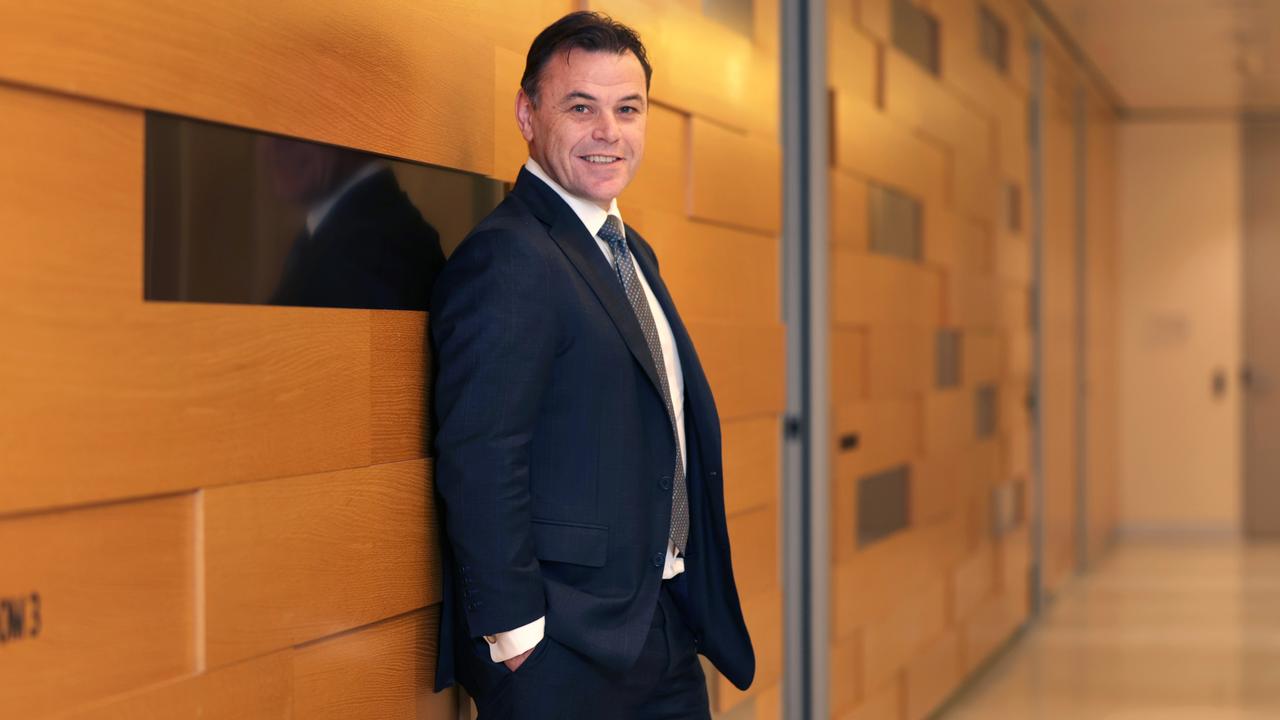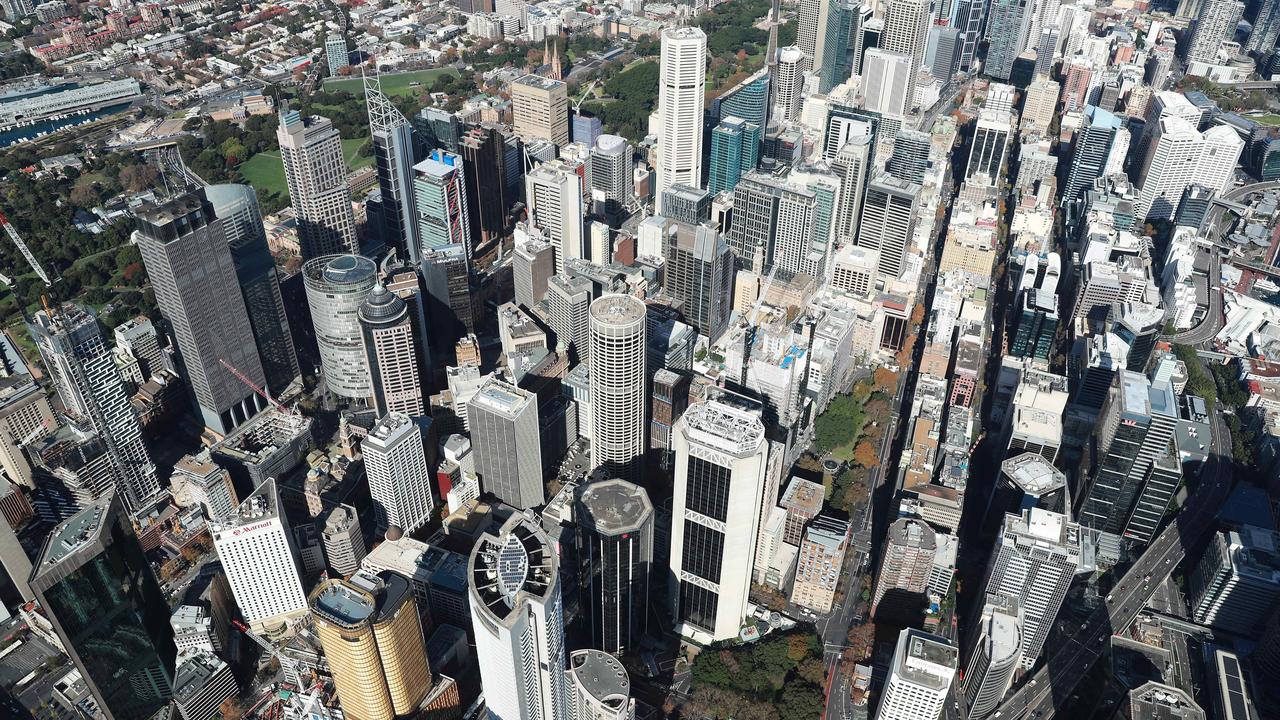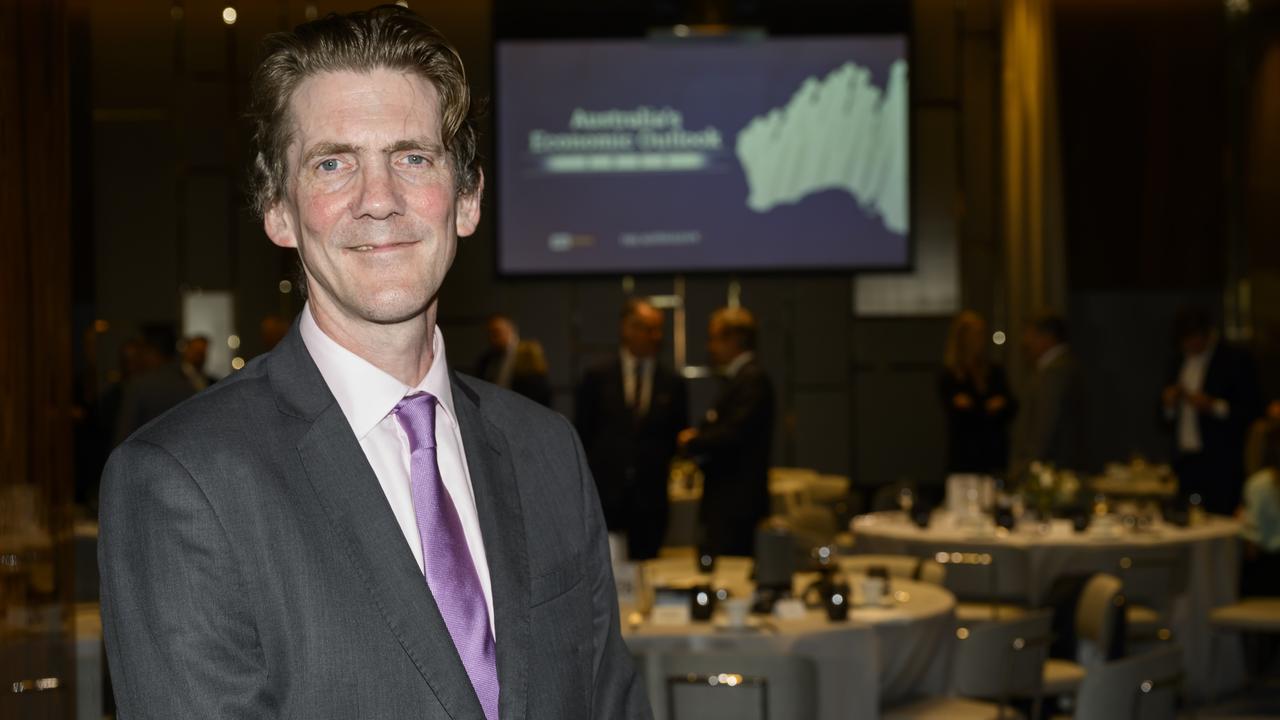Energy, property, minerals are putting Australia on investment map, says Citi boss Mark Woodruff
Citi CEO Mark Woodruff is talking up Australia on the global funds stage with hundreds of billions needed for energy, minerals and housing development.

The looming energy transition, critical minerals development and the need to develop substantially more housing are the big capital-hungry areas that are putting Australia on the radar of global investors in a serious way.
But there is a furious battle for global capital and, given the scale of the funds needed to grow, more needs to be done to sell the economy as an investment destination.
“Australia needs to do a better job talking up Australia,” says Citi’s Australian chief executive, Mark Woodruff.
The recently appointed bank boss is hoping to do his bit when Citi this week hosts almost 100 heavyweight investors from around the world. The sovereign wealth funds, pension funds and other investors that collectively control more than $25 trillion in assets will get an overview of Australia’s business and policy landscape.

Citi’s A50 Australian Economic Forum is aimed squarely at global investors, with asset managers from the US, Canada, Singapore, the Middle East and Europe put in front of the likes of Jim Chalmers and officials from the Reserve Bank. The conference is also open to Australian investors, including the likes of AustralianSuper and QIC.
But it’s the three big – energy transition, critical minerals and housing – that now represent a serious scale opportunity for potential investors on the outside looking in.
“At the moment, they’re seeing some opportunities they haven’t seen in the past,” Woodruff says in an interview.
He points out that the regulatory and political settings – an area that often attracts furious domestic debate – remain an economic strength.
“If I think about even this region, it’s hard to find another country that has a flexible and floating exchange rate, no capital controls, a sophisticated regulatory environment, and a relatively stable political environment,” he says.
This plays right into what investors are demanding: regulatory and policy certainty.
The A50 conference opens on Thursday night, marking the first speech for newly appointed RBA deputy governor Andrew Hauser. On Friday, the Treasurer will deliver a keynote address, while investors get exposure to other cabinet members and CEOs. Citi investment banking boss Tony Osmond will also host a round table with the respective chairs of the ACCC, ASIC and APRA.
The timing gives offshore investors a front-row seat to the nuclear debate after Peter Dutton last week declared he intended to push ahead with a plan to develop of seven nuclear reactor sites across the country.
Even with the debate still live and playing out, Woodruff points out the energy transition from solar, wind, hydrogen and transmission will demand massive investment. It is a sector where Australia has the opportunity to become a major global player.
“This is a long-term game that has real scale that (investors) understand from their home market,” Woodruff says.
The renewable opportunity and Australian critical mineral resources are significant in the global context, he says. “Offshore investors can see this as a standout opportunity.”
Housing is also attracting increasing focus for investment – whether that’s across infrastructure, construction or direct development.
“There’s a housing shortage here, and it’s a crisis for a lot of people. Therefore, to fix this problem it’s going to require multiple pools of capital and the government is aware of that,” Woodruff says.

However, investors will be looking for clarity over layers of regulation, approvals, and they want certainty to drive the confidence to invest.
While Australia has one of the deepest superannuation systems in the world, people shouldn’t assume it has a home ground advantage in attracting these funds into energy or housing, says Woodruff, who grew up in Melbourne and has worked on Wall Street with the bank.
No matter where they are based, super funds are looking to build a diversified portfolio that delivers the best long-term returns for members.
“Alongside international capital, the government needs to put forward a value proposition for domestic superannuation funds to invest domestically. They have choice. They’re becoming much more sophisticated,” Woodruff says.
With offshore markets offering super funds greater scale and returns, the government is competing to attract domestic capital just as much as it is international capital, he says.
Woodruff says the conference is an opportunity for the government to deliver an update on its economic and policy agenda.
“If you have a look at how much regulatory change there’s been, how much policy change there has been, and when you think through it in a global context, government policy is becoming a competitive beast in itself,” he says.
For Citi, this week represents a return to the policy space after the bank paused its annual A50 conference shortly before the Covid pandemic.
The resumption also follows a slimming down of Citi’s Australian franchise, after the New York-headquartered major sold its local consumer banking business to National Australia Bank. Under that deal, NAB emerged with Citi’s $12.2bn loan book and $9bn in retail deposits, as well as Citi’s high profile credit cards business. It means Citi is now a more pure investment and business bank.
More Coverage
It remains one of the biggest international banks operating in Australia, offering advisory, capital markets, commercial lending and trade and transaction services.
Woodruff is tipping Australia’s economy has entered its slowdown, but is set to avoid a recession, with the household consumption cycle likely to have bottomed.
“It looks like the RBA has navigated their way to a soft landing,” he says.
Originally published as Energy, property, minerals are putting Australia on investment map, says Citi boss Mark Woodruff






